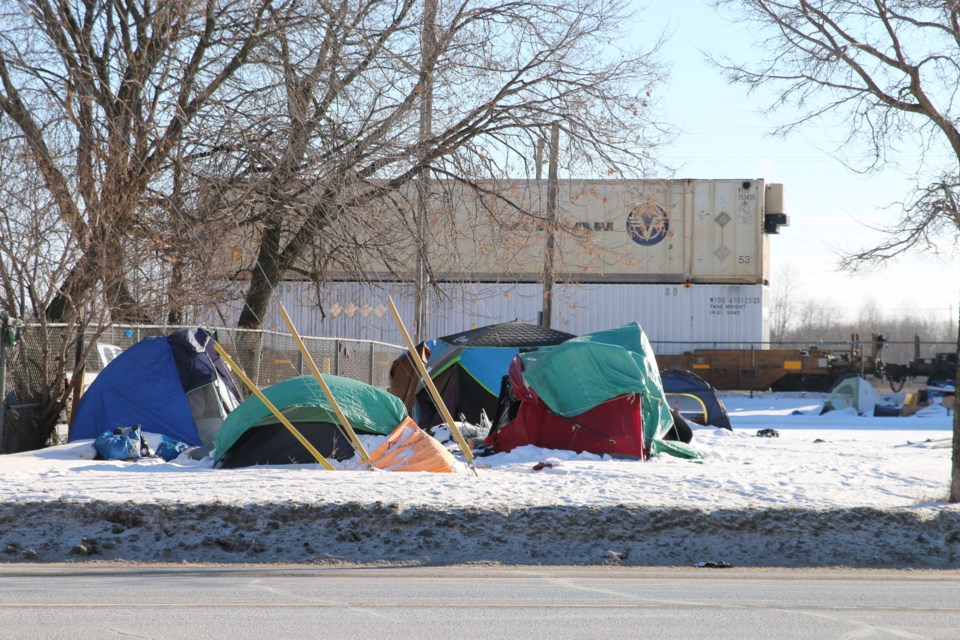THUNDER BAY — People are still regularly staying in homeless encampments or living out of their cars in the city, as temperatures hit -33 C Monday morning.
"It's heartbreaking. All of it is just heartbreaking," said Holly Gauvin, the executive director of Elevate NWO.
The frigid temperatures have led many who had been living in encampments to seek safety indoors, said Gauvin, but she's aware of at least 30 people who are still living outside, despite these dangerous conditions.
“That's a pretty significant number," said Gauvin.
People do sometimes manage to find short-term shelter on their own, added Gauvin.
She explained they'll spend some nights in stairwells or hallways and buildings they can get into, with some staying in abandoned buildings and going to a shelter for some nights.
“Sometimes people will think (an encampment) site has been abandoned because somebody hasn't been there in a couple of days, but it might be that their family member let them stay on the couch because it was a day like today where it's so cold out,” said Gauvin.
“But as soon as the weather warms even a little bit, they need to go back out to that tent, so they don't want to lose that stuff. So, it can be a little bit challenging keeping on top of supporting people.”
Elevate NWO does weekly outreach into these homeless encampments.
“Our staff go out on Fridays and check in with all the people in the encampments, make sure that they have the supplies that they're going to need over the weekend because weekends are tough. A lot of services are closed down and there aren't a lot of resources,” said Gauvin.
The number of people still living outside could have been even higher.
Gauvin said Elevate was able to get 22 people into hotel rooms thanks to a federal funding boost they hadn't expected to get this year.
The funds allowed them to bring people in from early December to stay until the end of March, but she said if they don't have housing offers before then, those individuals will go right back out into encampments.
“We're anxiously pushing people through as quickly as we can to get them into those better positions, better solutions, before the March deadline because it was actually really heartbreaking last year to see so many people returning to the camps,” said Gauvin.
There have been several initiatives proposed, but she said until there are real housing solutions in the community, there needs to be alternatives, especially focusing on supporting people who use substances who don't necessarily fit the criteria of some of the transition units and shelter options.
“We need to find some other alternative spaces for them, that will fit their needs and we'll have them out of the homeless encampments," said Gauvin.
Gauvin added that the provincial government also needs to come to the table as asked and figure out how they can best support the local DSSAB in making more permanent affordable housing units available.
“I've got some friends that are sitting with us today, who've been out in the camps for seven months now and they are wintering over every night, sleeping out in that cold weather,” said Gauvin.
“It just shouldn't take this long ... So let's get those operational, let's get people housed and let's concentrate on how to support to keep people housed.”
In the meantime, she said the organization is working on pilot projects to help keep more people from ending up on the streets.
“Before people's situation becomes untenable, we're trying to intervene early and help support them to be the tenants that landlords want to work with and so yeah, we're anxious to get that rolling out soon and to see what we can do to change some of the numbers that we're seeing,” said Gauvin.
Numbers that she said haven't come down in five years and only continued to escalate into the hundreds.
Gauvin said they've seen over 200 people in encampments this year, "and that's an insane number of people for a city our size."
(With files from Olivia Browning)
